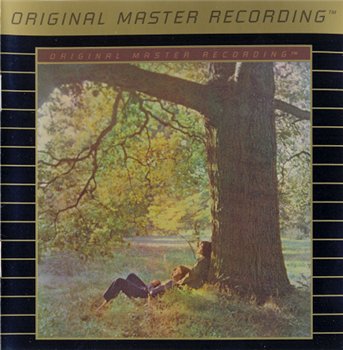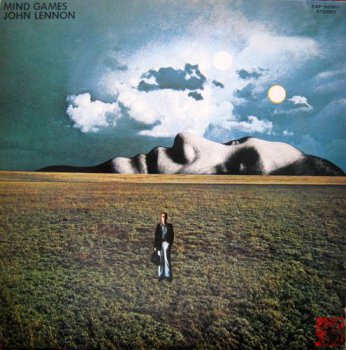MAGNUM «Discography» (24 × CD · Japan 1St Press · 1978-2024)
Performer: MAGNUM / ディスコグラフィー Album / collection: «Discography / ディスコグラフィー» Label: (c)(p) 1978-2024 Jet / Polydor / SPV Source: Rip by KoGGaN™ scans by inet… Official DR value: •13•11•12•12•11•13•14• •12•11•12•11•11•9•11•6/8•6•6•6•5/5•5•5•6• Catalog (Barcode): much… Genre / Style: Rock, Melodic Rock, AOR, Pomp Rock Year (info): 1978-2024 (24 × First Press CD, Collection—) Format: WV (image + .cue) Bitrate: lossless Covers: in archive Amount of tracks: 256 Total time: 20:46:11 Size RAR: ~ 11,51

MAGNUM «Discography» (24 × CD · Japan 1St Press · 1978-2024)
Performer: MAGNUM / ディスコグラフィー Album / collection: «Discography / ディスコグラフィー» Label: (c)(p) 1978-2024 Jet / Polydor / SPV Source: Rip by KoGGaN™ scans by inet… Official DR value: •13•11•12•12•11•13•14• •12•11•12•11•11•9•11•6/8•6•6•6•5/5•5•5•6• Catalog (Barcode): much… Genre / Style: Rock, Melodic Rock, AOR, Pomp Rock Year (info): 1978-2024 (24 × First Press CD, Collection—) Format: WV (image + .cue) Bitrate: lossless Covers: in archive Amount of tracks: 256 Total time: 20:46:11 Size RAR: ~ 11,51
17 10, 2025
Battle Beast - Steelbound 2025
Исполнитель: Battle Beast Альбом: Steelbound Жанр: Heavy Metal, Power Metal Год: 2025 Страна: Finland (Helsinki, Uusimaa) Лейбл: Nuclear Blast Формат: FLAC (tracks) Official DR value: DR6 Разрядность: 24bit / 44.1kHz Stereo Размер: 466 MB Инфо: bandcamp Залито на: XFile (3% восстановление) «Exclusive for Lossless-Galaxy»
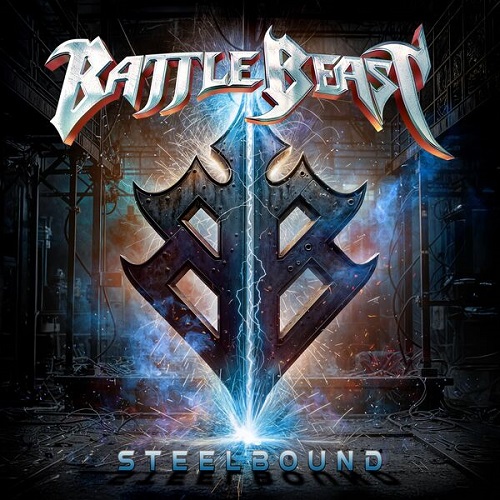
Battle Beast - Steelbound 2025
Исполнитель: Battle Beast Альбом: Steelbound Жанр: Heavy Metal, Power Metal Год: 2025 Страна: Finland (Helsinki, Uusimaa) Лейбл: Nuclear Blast Формат: FLAC (tracks) Official DR value: DR6 Разрядность: 24bit / 44.1kHz Stereo Размер: 466 MB Инфо: bandcamp Залито на: XFile (3% восстановление) «Exclusive for Lossless-Galaxy»
17 10, 2025
Sabaton - Legends 2025
Исполнитель: Sabaton Альбом: Legends Жанр: Power Metal Год: 2025 Страна: Sweden (Falun, Dalarna) Лейбл: Better Noise Music Формат: FLAC (tracks) Official DR value: DR6 Разрядность: 16bit / 44.1kHz Stereo Размер: 335 MB Инфо: bandcamp Залито на: XFile (3% восстановление) «Exclusive for Lossless-Galaxy»
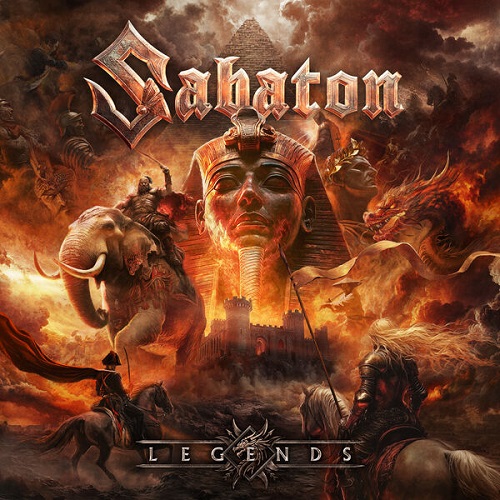
Sabaton - Legends 2025
Исполнитель: Sabaton Альбом: Legends Жанр: Power Metal Год: 2025 Страна: Sweden (Falun, Dalarna) Лейбл: Better Noise Music Формат: FLAC (tracks) Official DR value: DR6 Разрядность: 16bit / 44.1kHz Stereo Размер: 335 MB Инфо: bandcamp Залито на: XFile (3% восстановление) «Exclusive for Lossless-Galaxy»
17 10, 2025
Жанры
Lossless Galaxy Release
Русская музыка
--Поп
--Рок
--Панк
--Альтернатива
--Металл
--Рэп, Хип-Хоп, R'n'B
--Джаз и Блюз
--Фолк
--Шансон, Авторская песня
--СССР
Зарубежная музыка
--Pop
--Rock
--Hard Rock
--Progressive & Art-Rock
--Pop-Rock & Soft Rock
--Instrumental Rock
--Heavy, Traditional, Industrial Metal
--Power, Gothic, Sympho Metal
--Thrash, Speed, Groove, Modern Metal
--Death, Melodic Death, Doom, Dark Metal
--Black, Pagan, Folk, Viking Metal
--Alternative
--Punk
--Disco, Eurodance
--Rap, Hip Hop, R'n'B
--Reggae, Ska, Dub
--Jazz, Blues, Soul
--Folk, Country, Ethnic
--Electronic, Ambient, New Wave
--House, Techno, Trance
Другие жанры
--New Age, Relax, Meditative & Flamenco
--Chillout, Lounge, Downtempo, Trip-Hop
--Drum & Bass, Jungle, Breakbeat, IDM
--Classical / Классическая музыка
--Soundtrack
--Музыкальные сказки
Vinyl Rip
HI-Res / DVD-Audio / DTS
--SACD
--DSD
--DVD-Audio
Сборники Lossless-Galaxy
Альбомы 2022
Альбомы 2023
Альбомы 2024
Теги
1st Press 2022 2023 2024 2025 70... AOR Black Metal Blues Blues Rock Bootleg Series Classic Rock Death Metal Discography Exclusive for Lossless-Galaxy Folk Rock Fusion Hard Rock Heavy Metal Hi-Res Japanese Edition Jazz Jazz Rock lossless Melodic Death Metal Melodic Rock Modern Electric Blues Pop Pop Rock Power Metal Prog Rock Progressive Metal Progressive Rock Psych Rock Psychedelic Rock Rock SACD Symphonic Metal Thrash Metal Дискографии от KoGGaN
Архивы
Опрос
В каком формате хотели бы видеть релизы на сайте ?
 Автор: LeddZepp, 8 марта 2024, Комментариев: 0, Просмотров: 325
Автор: LeddZepp, 8 марта 2024, Комментариев: 0, Просмотров: 325John Lennon (The Beatles) - John Lennon / Plastic Ono Band [Japan Ed.] (1970)
Year: 11 December 1970 (CD Nov 28, 2007)
Label: EMI Records (Japan), TOCP-70391
Style: Rock, Pop Rock, Avantgarde
Country: Liverpool, England (9 October 1940 - 8 December 1980)
Time: 46:25
Format: Flac Tracks 16/44,1 kHz
Size: 257 Mb
Дебютный сольный альбом Джона Леннона - это уникальная исповедь, записанная сразу после распада Битлз.
Plastic Ono Band - это сеанс авто-психоанализа и катехизис революционера в одном флаконе, но с креном в сторону самопознания большим, чем в сторону революционных прокламаций. Фрейд превалирует над своим вечным соперником - Марксом.
Последние три года Леннон уже почти ненавидел "легенду о Битлз". Джон чувствовал себя в группе, как уссурийский тигр в клетке зверинца.
Именно на этом альбоме, в песне "God" он и спел известную строчку: "Я не верю в Битлз, я верю только в себя".
Джон задыхался в плену кукольного имиджа группы, в удушающей атмосфере всеобщего обожествления. Его натура протестовала против того, что из его группы и его музыки делали примитивный объект маркетинга, творили поп-религию для подростков. Леннон отказывался служить поющей левреткой для светских тусовщиков. Он рвался из клетки "Битлз" на волю.
Этот альбом должен был стать для него спасительным глотком творческой свободы.
Первый, после распада Битлз, альбом Леннона имеет определённую (и неслучайную) схожесть с харрисоновским All Things Must Pass. Похожи они, прежде всего, своей глубокой философичностью (совершенно разной по своей сути и истокам).
И ещё одно обстоятельство роднит оба пост-битловских альбома: участие в записи Ринго Старра, Клауса Фурманна, Билли Престона и продюсирование Фила Спектора. Все эти легендарные персонажи участвовали как в записи All Things..., так и на Plastic Ono Band.
А вот музыкально эти альбомы совершенно разные. Альбом Леннона, в отличии от солнечного тройника Джорджа, (почти) депрессивен по настроению. Джон здесь выворачивает свою душу наизнанку и делает это с мазохистским ожесточением.
Саунд Plastic Ono Band резкий, местами даже нойзовый, и одновременно - минималистичный. Лаxxxный как рапорт римского прокуратора. На протяжении всей пластинки мы слышим только вокал и гитару или фортепиано самого Леннона, поддержанные только ритм-секцией Старр/Фурманн. Всего пару раз за клавишами Джона подменяют Фил Спектор(Love) и Билли Престон (God).
Временами строгий аудио-ландшафт альбома становится и вовсе аскетичным - только Леннон, только его вокал и гитара (или ф-но).
Одинокая и растерзанная сомнениями душа молодого бунтаря и художника, земную жизнь прошедшего до половины и оказавшегося в том самом сумрачном лесу, о котором предупреждал Данте. Великий поэт, как мы помним, покидал свою Флоренцию почти в том же состоянии, в котором Леннон покидал Битлз.
А иногда музыкальный пейзаж и вовсе замирает ... остаются только белые пятна тишины в музыкальной ткани (или чёрные?). Как дырки от прострелов. Или это был взгляд внутрь дымящегося после выстрела пистолетного ствола?
Пришла бы мне в голову такая жутковатая мысль, не знай я о выстрелах у входа в "Дакоту"?
Вслушайтесь в похоронный звон колоколов интродукции и в фортепианные аккорды пронзительной "Mother". Вслушайтесь в рвущий душу вокал! Возможно, лучший вокал из всего, что когда-либо спел Джон.
полная версия: driverpete.ru/recenzii/albomy/john-lennon-plastic-ono-band-1970?ysclid=ltiffmzsbf150697878
01. Mother (05:37)
02. Hold On (01:51)
03. I Found Out (03:37)
04. Working Class Hero (03:50)
05. Isolation (02:51)
06. Remember (04:36)
07. Love (03:24)
08. Well Well Well (05:59)
09. Look At Me (02:55)
10. God (04:10)
11. My Mummy's Dead (00:59)
12. Power To The People (Bonus Track) (03:22)
13. Do The Oz (Bonus Track) (03:07)
При желании можно посмотреть все мои публикации на сайте. Приятного прослушивания. Жмём и смотрим (Click to see all of my posts)!
Внимание! У Вас нет прав для просмотра скрытого текста.
Похожие новости:
Комментарии отсутствуют
Добавить комментарий!
Информация
Посетители, находящиеся в группе Гости, не могут оставлять комментарии к данной публикации.



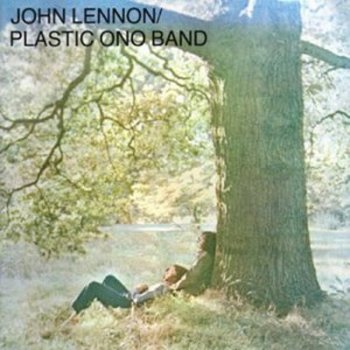
![John Lennon - Mind Games (1973) [Vinyl Rip]](/uploads/posts/2020-06/1593429638_johnlennon73mindgames_500_lp.jpg)
